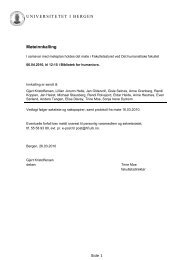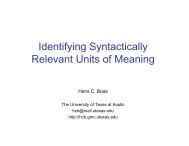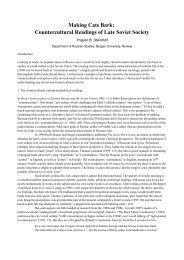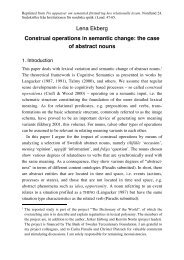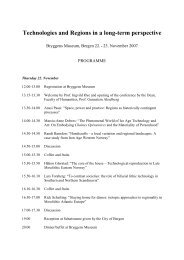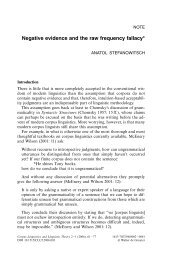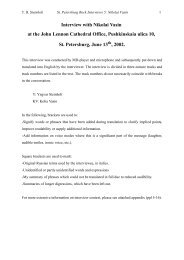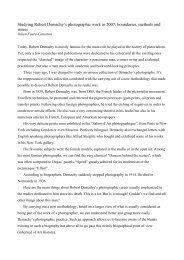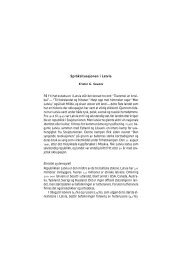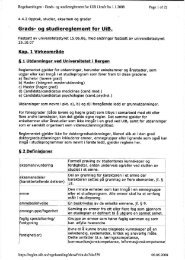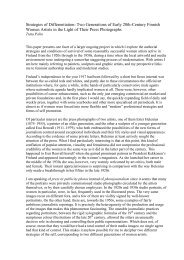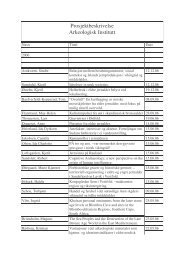THE BOOK OF POEMS IN TWENTIETH-CENTURY ... - TopReferat
THE BOOK OF POEMS IN TWENTIETH-CENTURY ... - TopReferat
THE BOOK OF POEMS IN TWENTIETH-CENTURY ... - TopReferat
You also want an ePaper? Increase the reach of your titles
YUMPU automatically turns print PDFs into web optimized ePapers that Google loves.
does now, in exile, but it is seemingly impossible. Her soul is tied to her native land,<br />
incapable of finding a place in the peaceful south.<br />
When initially published, the poem was titled "Сумерки," also suggesting the<br />
mixed nature of the poem—the light of the south and the darkness of Russia mingle<br />
together in the twilight, the convergence of day and night. The new title, however,<br />
focuses the reader's attention on the last lines of the poem which are concerned with the<br />
fate of the poet's native land. This emphasis on the final emotional, personal address<br />
connects "За что?" more directly with its antecedent, "Неотступное," and suggests that<br />
the poems which follow, while not making direct reference to Russia, are also informed<br />
by the poet's despair for her native land.<br />
In the second poem of the cycle, "Лягушка," the poet listens to a frog, imagining<br />
she might discover a new understanding of the world hidden in the frog's secret language.<br />
In the end, however, she rejects this foolish notion, blaming it on the murkiness of the<br />
southern night:<br />
Но я с досадой хлопаю окном:<br />
Всё это мара ночи южной<br />
С ее томительно-бессоным сном...<br />
Какая-то лягушка! Очень нужно!<br />
But with vexation, I slam the window shut:<br />
All this is just the murk of the southern night<br />
With its oppressively-sleepless sleep…<br />
Some frog! Very necessary!<br />
By slamming shut the window, the bridge between her internal and external worlds, 150<br />
the poet has, in effect, closed herself off to her spiritual life.<br />
150 Matich has described the image of the window in Gippius's poetry as a symbol of the poet's isolation or<br />
seclusion. It separates her from the rest of the world: "By virtue of the window, which is usually high<br />
above the ground, the poet is put into the position of a remote observer who looks at the outside world<br />
through her window-keyhole." Matich, Paradox, 89. While the window does indeed separate, it also<br />
114



